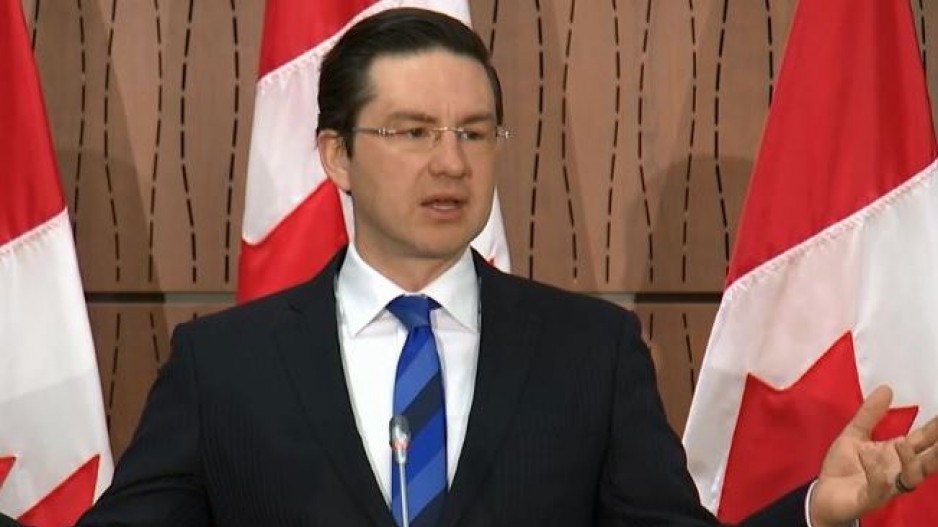Conservative Leader Pierre Poilievre's attempt to block the federal government's budget bill from passing earlier this month is the latest example of government spending coming under scrutiny amid high inflation.
And while most fiscal experts agree that government spending can fuel inflation, economic research suggests the link between the two is more complex.
The leader of the opposition demanded the federal government present a plan to balance its budget, or his caucus would filibuster the bill. He argued that by running deficits, the government was driving up inflation and forcing the Bank of Canada to keep interest rates high.
His demands were ultimately not met and the budget bill passed in the House of Commons.
But the scrutiny on government spending is far from over as inflation remains elevated and the Bank of Canada is at risk of raising interest rates again after hiking its key rate to 4.75 per cent earlier this month.
At the same time, economists say government spending can affect both demand and supply in the economy, making its total impact on inflation more difficult to read.
Western University economics professor Stephen Williamson said the notion that more government spending equals more inflation is "something you might teach in, like a second-year (university) class."
"It's more complicated," he said.
There are competing theories on the issue, he says, with mixed findings in economic literature.
Take, for example, a new study from the Bank of Canada that looks at U.S. data on inflation and government spending. It found a rise in government expenditure can actually push down inflation.
The study published earlier this month — co-authored by the central bank's Yinxi Xie and Chang Liu from the National University of Singapore — focuses specifically on government spending on goods and services, leaving out transfer payments to people and businesses.
"Our results run counter to the conventional wisdom that fiscal expansions are inflationary," the authors wrote.
"We find that inflation falls following an increase in government expenditure and that the effect is relatively persistent, lasting for about one and a half years."
The researchers suggest that a rise in government spending can reduce inflation by boosting employment levels, therefore increasing supply in the economy.
University of Calgary economics professor Trevor Tombe said that according to this theory, people choose to work more when government spending rises because they anticipate taxes to rise as well.
"This is presented as somewhat counterintuitive results, that an increase in government spending can lower inflation," Tombe said.
However, Tombe cautioned against drawing any definitive conclusions from one research finding.
"Certainly, it's interesting. That's a valuable contribution. But no single paper is the end of the conversation," he said.
Williamson agreed, noting that the paper doesn't look at government transfers, such as the payments sent out during the COVID-19 pandemic.
But the idea that government policy can reduce inflation by easing supply is not new.
Former Bank of Canada governor Stephen Poloz has argued that the federal budget, which focused heavily on growing the green economy, could actually help reduce inflation by expanding the economy's productive capacity.
And Finance Minister Chrystia Freeland has been quick to quote Poloz in defence of her spending plans.
As to what drove the current bout of high inflation in Canada and what role government spending had to play, Tombe said that's still an open question.
"We will be studying this period for decades to come," Tombe said.
This report by The Canadian Press was first published June 19, 2023.
Nojoud Al Mallees, The Canadian Press




